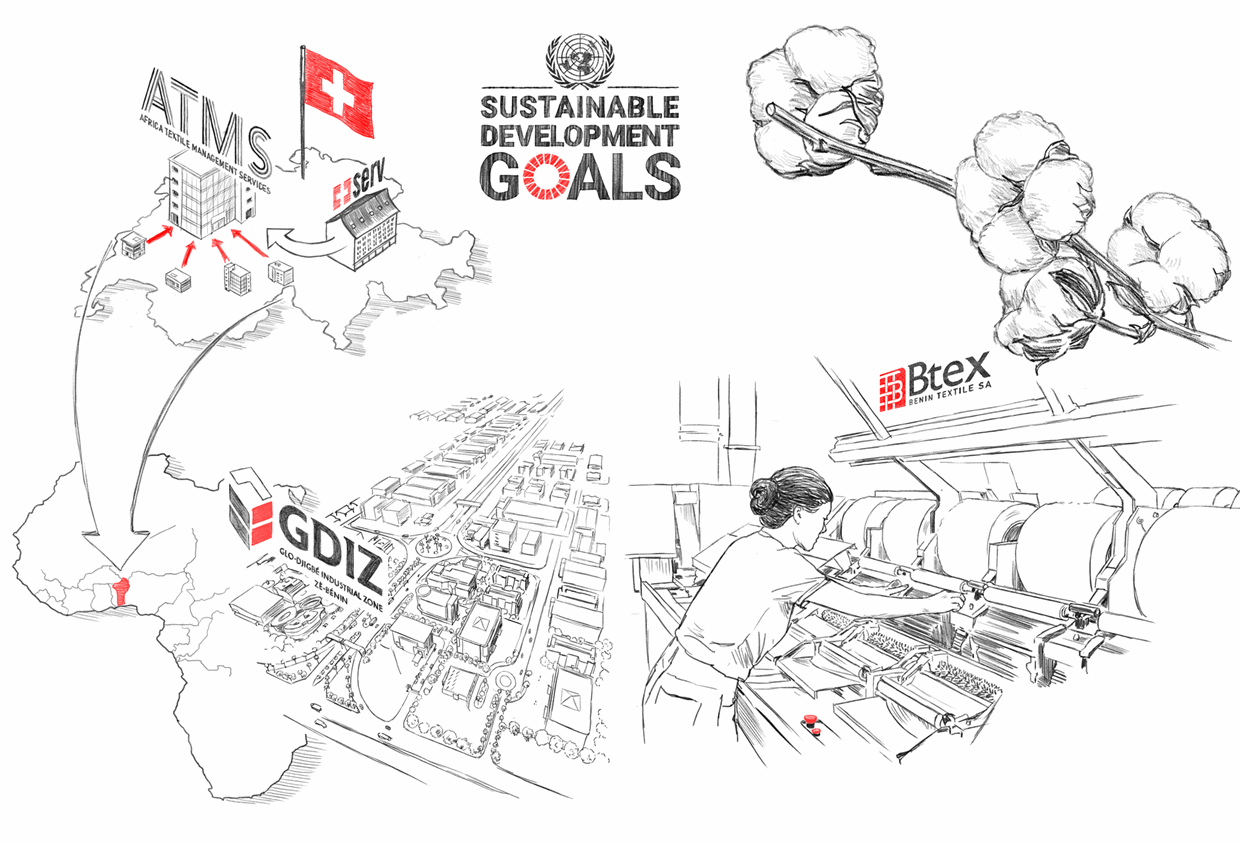Sustainability
Sustainability
SERV checks all insurance applications for their environmental, social and human rights compatibility. It pursues its own climate strategy and is committed to maximum transparency.
When assessing insurance applications, SERV takes into account the international guidelines of the Organisation for Economic Co-operation and Development (OECD) and the principles of Swiss foreign policy according to Art. 6 para. 2 SERV Act (SERVG). These relate in particular to the peaceful co-existence of peoples, respect for human rights and promotion of democracy, conservation of natural resources, alleviation of poverty and destitution in the world, but also to preserving Switzerland’s independence and protecting its national welfare. Further requirements may arise as a result of Switzerland’s obligations under international law. The extensive sustainability checks conducted include environmental, social and human rights reviews, anti-corruption audits and, in certain cases, audits of the debt sustainability of public-sector buyers when financing supported projects.
When assessing larger projects with potentially high environmental, social and/or human rights impacts (category A and B projects), on-site visits are also carried out where necessary.
Climate strategy
The SERV Board of Directors (BoD) agreed SERV’s climate strategy in June 2021. By means of this strategy, SERV aims to support the Swiss export industry in dealing with climate change. The three cornerstones of the strategy include the handling of operational greenhouse gas emissions, integrating climate risks into business operations and SERV’s contribution to decarbonising the economy.
Transparency
SERV publishes all projects with a contract value of CHF 10.0 million or more on its website, subject to the policyholder’s approval, as well as Category A projects.
SERV also maintains a regular dialogue with interested non-governmental organisations (NGOs). Within the framework of an annual NGO dialogue, it provides information about its business results and specific current projects, as well as developments at SERV and in the OECD export credit group. The invitees to the NGO event in 2023 were Alliance Sud, Amnesty International, Pro Natura, Public Eye, Transparency International and WWF. This exchange of views is very much appreciated by all participants, and the NGOs expressed their satisfaction with SERV’s high level of transparency.
NGO event with Alliance Sud, Amnesty International, Pro Natura, Public Eye, Transparency International and WWF
Example in the field
BOOSTING VALUE ADDED IN THE BENINESE TEXTILE INDUSTRY


SERV provided insurance cover for deliveries from Switzerland destined for a textile project in Benin in 2023. The project, BTEX (Benin Textile SA), promoted jointly by ARISE IIP, CDC Benin, SODECO and ginners from Republic of Benin, comprises the construction of a textile factory featuring a full textile processing and finishing plant in the newly created Glo-Djigbé industrial hub outside of Cotonou. The Zug-based general contractor, Africa Textile Management Services AG (ATMS), is involved in the project together with several Swiss sub-contractors.
A project that is fully aligned with the Sustainable Development Goals
The United Nations (UN) Sustainable Development Goals (SDG) are to be achieved by all UN member states, including Switzerland, by 2030. The SDGs include the following goals:
- SDG 8: Promote sustained, inclusive and sustainable economic growth, full and productive employment and decent work for all
- SDG 9: Build resilient infrastructure, promote inclusive and sustainable industrialisation and foster innovation
This project is fully aligned with these goals. This is because the lion’s share of the cotton produced in West Africa – a significant proportion of which comes from Benin – is currently exported to countries in Asia for further processing. This is now set to change with the new factory. It is the first vertically integrated textile factory in Benin and will make a key contribution to boosting the added value, enabling exports of cotton textiles and finished garments from Benin. Processing the cotton locally also allows for a considerable reduction in transportation costs, with production costs that are competitive in an international comparison. Establishing this sort of textile value chain will also create several thousand jobs.
